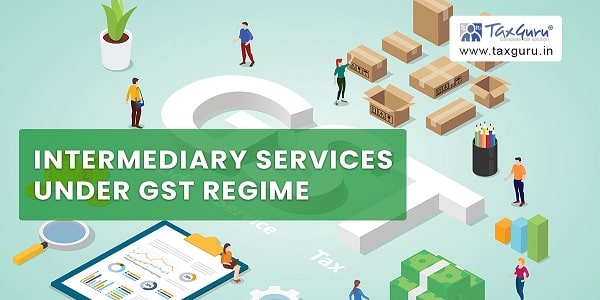
Over the years, the Indian government has been imposing goods and services tax on more and more things. Earlier this year, the government added another thing to their list of taxed goods: intermediary services. In other words, if you provide any intermediary service in India, then you need to pay GST on that service because the government considers it an export now. Although many companies have been dealing with this change in policy for some time now, there are still plenty of businesses who aren’t familiar with what an intermediary service is and how it works when it comes to exports.
Intermediary Services and Key Takeaways
An intermediary service is a type of business service that helps two other businesses complete a transaction. In order for the GST to be considered an export, the service must be provided outside of Canada. If the service is provided in Canada, the GST is not considered an export. The following are key takeaways from this blog post:
-GST is only chargeable on intermediary services if it’s considered an export
-In order for the GST to be considered an export, the service must be provided outside of Canada
-If the service is provided in Canada, the GST is not considered an export . For example, A Company provides a service of arranging delivery between Company B and Company C inside Canada. Company A does not charge any taxes and Company B does not have to pay any taxes because the intermediary service was performed inside Canada.-
-This distinction between exports and non-exports will change how we interpret whether intermediaries can provide taxable goods and services without having to collect tax from their customers when they cross borders into another province as intermediaries.-This distinction will also change how we interpret who needs to register for GST/HST as well as what needs to be included on invoices.
Intermediary Service – Basic Concept and Meaning
Intermediary service is a very important part of the global economy. It is a way of connecting two parties who would not otherwise have had the opportunity to do business together. The term can be used in many different industries, but most commonly it refers to the financial industry. In this context, an intermediary service is a way for two parties to trade without having to go through a third party. This can be done through a number of different methods, but the most common is by using a broker. Brokers are able to get their clients access to markets that they may not otherwise have been able to reach and offer better pricing than what the client could negotiate themselves. Brokers will typically charge a commission for these services, and sometimes this will include any transaction fees that are incurred as well.
A question that often arises about these types of transactions is whether or not they are subject to GST? As with other questions like this, there are no definitive answers.
Whether Intermediary Services are treated as Exports or Not
It can be difficult to determine whether your company’s intermediary services are considered exports under the Goods and Services Tax (GST). Here are some factors to consider when trying to make this determination:
1. The first thing you need to look at is the definition of an export under the GST.
2. You also need to consider whether the service you provide is directly related to the supply of goods or services exported.
3. Another important factor is whether the service you provide assists in the exporting of goods or services from one country to another.
4. You also need look at whether the service you provide is necessary for the successful completion of the export transaction.
